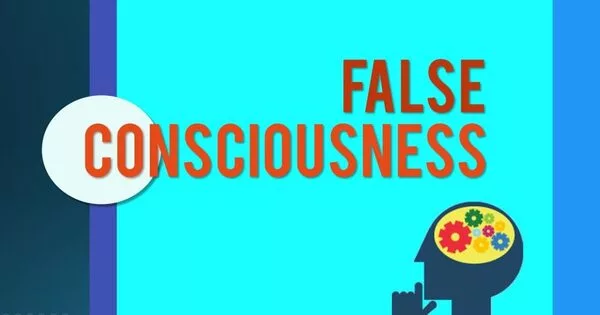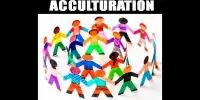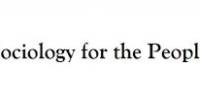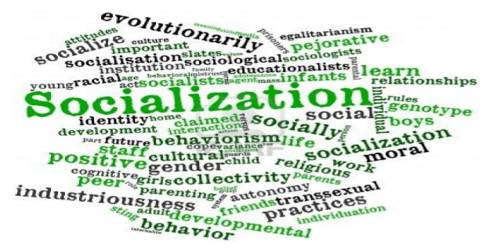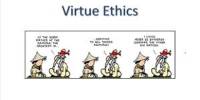False consciousness is a term used in Marxist theory to describe how material, ideological, and institutional processes are said to mislead members of the proletariat and other class actors within capitalist societies, concealing the exploitation inherent in class relations. It implies that people may inadvertently adopt and support beliefs that benefit the ruling class, even if these views ultimately harm their own well-being.
Karl Marx, a German philosopher, economist, and political theorist, believed that society was divided into two classes: the bourgeoisie (the capitalist class that owns the means of production) and the proletariat (the working class that sells its labor to the bourgeoisie). The bourgeoisie, according to Marx, controlled the means of production and held enormous economic and political power, whereas the proletariat, who lacked control over the means of production, was economically dependent on the bourgeoisie.
Origin of terminology
False consciousness is consciousness that is inaccurate and out of sync with reality. False consciousness, in a Marxist worldview, is a major barrier to human progress. Thus, a key focus of dialectical materialism is the correction of faulty consciousness.
In an 1893 letter to Franz Mehring, Friedrich Engels (1820-1895) used the phrase “false consciousness” to describe the situation in which a subordinate class consciously adopts the ideology of the ruling class. This consciousness, according to Engels, is “false” since the class is asserting itself towards ends that do not benefit it. In the letter, Engels uses the terms false consciousness and ideology interchangeably.
“Consciousness”, in this context, reflects a class’s ability to politically identify and assert its will. The subordinate class is conscious if it plays a major role in society and can assert its will due to being sufficiently unified in ideas and actions.
Argument
False awareness develops as a result of the social settings and intellectual framework in which persons are raised and live. Marx maintained that the ruling class disseminates a dominant ideology that defends and maintains the status quo through numerous institutions such as the media, education, and religion. This ideology portrays the current socioeconomic order as natural, inevitable, and beneficial to all, regardless of its actual consequences for the working class.
As a result, the proletariat may internalize the ruling class’s ideals and come to accept their position as “normal” or “deserved,” even if it results in exploitation and tyranny. They may identify with the bourgeoisie’s goals or assume that their difficulties are the result of human flaws rather than systemic issues. Marx described to this embrace of the dominant ideology and misunderstanding of their own exploitation as false consciousness.
According to Marxists, overcoming false consciousness is necessary for the proletariat to recognize their common interests and struggle toward societal transformation. The working class can organize and strive for a classless society based on the ideals of socialism and communism by becoming aware of their class position and the exploitative nature of the capitalist system.
